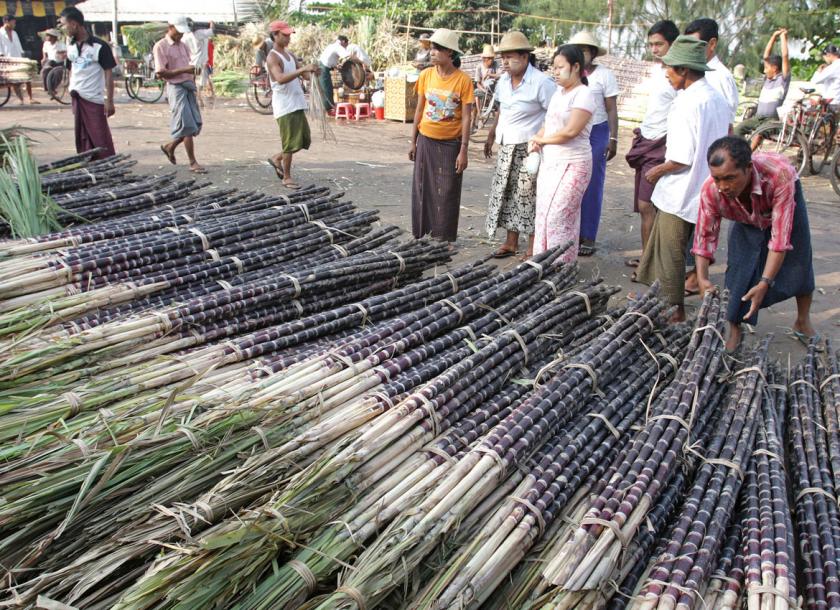Re-export license, tariff quotas for Myanmar sugar discussed
Arrangements are being made for sugar re-export licenses to be reissued after this year’s sugarcane crushing season ends within the next few weeks, said U Win Htay, deputy chair of Myanmar Sugar and Sugar Cane Related Products Merchant & Manufacturers Association.
The announcement was first made at a regular meeting between government ministers and local entrepreneurs last week.
The move is being considered after China submitted a request to raise import tariffs on Myanmar sugar to the World Trade Organisation (WTO).
On March 28, U Toe Aung Myint, permanent secretary for the Ministry of Commerce told The Myanmar Times that the licenses would be granted based on demand from China, which is the largest importer of Myanmar sugar.
“They have started talking about granting the licenses after we sent letters to the government departments since March,” said U Win Htay.
Besides helping traders, the re-export license is also a source of tax revenue for the government.
Higher tariffs
However, Myanmar traders may be faced with tougher conditions than before. To protect its own sugar producers, China has requested permission from the WTO to raise sugar import tariffs by 45 percent on top of the existing duties. It has also cracked down on illegal sugar traders.
Last May, China introduced the additional 45pc duty on imports from several countries such as Brazil and Thailand to protect its industry from what it identified as a surge in imports.
As Myanmar produces 11pc of the total volume of sugar exported to China, U Win Htay urged the government to negotiate for tariff quotas for locally processed sugar.
“A tariff quota system for sugar produced locally will be beneficial for local farmers and factories. In the past, Cambodia was permitted to export 1.8 million tonnes of sugar to China under this system,” he said.
Sugar ban
Whatever the case, resuming the process of issuing the licenses will help struggling sugarcane farmers and sugar processors cover costs.
Currently, a 20-kilgoram bag of sugar fetches 188 yuan, down from 200 yuan per bag before due to the oversupply. And while the glut has tapered considerably since last year, sugarcane farmers are still concerned that prices may not pick up in time for the next harvest in November.
After sugar prices collapsed during the middle of last year when China stopped importing from Myanmar, the government temporarily stopped issuing sugar re-export licenses.
Since 2015, China had been one of the largest buyers of sugar from Myanmar. To meet the huge demand, hundreds of sugar traders in Myanmar were issued with licenses to import sugar and re-export the commodity.
At the peak of China’s demand in 2016, Myanmar re-exported more than 3 million tons of sugar to China.
However, since China stopped buying sugar from Myanmar, large inventories of sugar have accumulated in warehouses across Yangon, Mandalay and Muse.
Source: https://www.mmtimes.com/news/re-export-license-tariff-quotas-myanmar-sugar-discussed.html


 English
English




